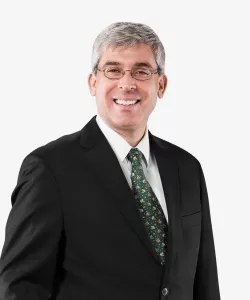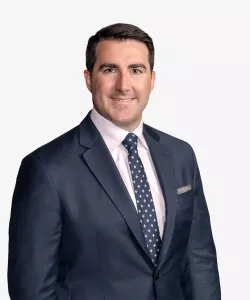Florida Health Care Facility Owner Convicted in $1.3 Billion Fraud Scheme
Headlines that Matter for Companies and Executives in Regulated Industries
DOJ News
Florida Health Care Facility Owner Convicted in $1.3 Billion Fraud Scheme
After an eight-week trial, a federal jury in Florida convicted a health care facility owner for orchestrating one of the largest health care fraud schemes in US history. According to evidence presented at trial, from approximately January 1998 through July 2016, the defendant led an extensive health care fraud conspiracy involving a network of assisted living facilities and skilled nursing facilities.
The case involved over $1.3 billion in fraudulent claims to Medicare and Medicaid for services that the jury found were not provided, were not medically necessary or were procured through the payment of kickbacks. Sentencing in the case has not yet been scheduled.
The DOJ’s press release is available here.
British Drug Maker Indivior Indicted For Opioid Marketing Fraud
On Tuesday, a federal grand jury indicted Indivior Inc., formerly known as Reckitt Benckiser Pharmaceuticals Inc., and Indivior PLC (collectively, Indivior) on charges that the companies orchestrated a “nationwide scheme” in the US to falsely market their under-the-tongue Suboxone Film. The criminal charges against the publicly traded British pharmaceutical giant include conspiracy, health care fraud, mail fraud and wire fraud. Federal prosecutors allege that Indivior exaggerated the benefits of its Suboxone Film, a new version of Indivior’s older opioid dependence pill, as a more child-proof and less addictive version of the drug’s tablet form.
Notwithstanding the fact that the primary ingredient in both Suboxone Film and tablets is buprenorphine, a highly potent opioid, the indictment states that Indivior promoted Suboxone Film as safer and less-divertible than its tablet form without any scientific evidence to support those claim. The government further alleges that Indivior set up an internet and telephone “Here to Help” program to connect opioid-addicted patients to doctors that the companies “knew were prescribing Suboxone and/or other opioids in a careless and clinically unwarranted manner.”
The 50-page, 28-count indictment seeks forfeiture of at least $3 billion. The United States Attorney’s Office for the Western District of Virginia and the DOJ’s Consumer Protection Branch are prosecuting the case.
The DOJ’s press release is here.
Oklahoma Doctors Settle Allegations of Pain Cream Prescription Kickbacks
Two physicians entered into separate civil agreements with the US Attorney’s Office for the Northern District of Oklahoma for allegedly accepting illegal kickback payments from a compounding pharmacy. Beginning in 2013, the two doctors received hourly compensation from an Oklahoma pharmacy for prescribing pain creams to their patients.
The government alleged that the hourly compensation was actually a disguised kickback that facilitated the sale and distribution of the pharmacy’s products. The settlements resolve allegations that the physicians had improper financial relationships with the compounding pharmacy.
The DOJ’s press release is available here.
‘Closed Door’ Michigan Pharmacy Owner and Pharmacist Charged with Health care Fraud
Federal prosecutors unsealed an indictment charging four individuals in a conspiracy to commit health fraud. The indictment alleges that two “closed door” pharmacies (i.e. pharmacies that were not open to the public) billed approximately $9.2 million dollars for medications that were never dispensed. The defendants billed insurance companies for allegedly submitting claims for delivering over 500 medications to people who had died prior to the claimed date of delivery.
The indictment also alleges that the proceeds of the fraud were laundered by overpaying consulting and delivery companies operated by close relatives of the pharmacy owners. If convicted, the defendants face a maximum sentence of imprisonment of ten years, and a maximum fine of $250,000.
The DOJ’s press release is available here.
Litigation News
Second Circuit Refuses to Allow a Relator to Share in FCA Recovery Under ‘Alternate Remedy’ Theory
In one of the first cases to review the False Claims Act (FCA)’s “alternate remedy” provision, relator Milton DaSilva appealed the Southern District of New York (SDNY)’s decision that he was not entitled to share in a $25.6 million settlement. DaSilva, a former quality control engineer at EOTech, submitted information to federal prosecutors that his former employer manufactured and knowingly sold defective holographic weapon sights. Around the same time, DaSilva was convicted of an unrelated charge by a Michigan state court and then fled to Brazil before sentencing.
While he was a fugitive, DaSilva filed a qui tam action in the SDNY. DaSilva’s attorneys subsequently moved to dismiss the qui tam action without prejudice, and the district court dismissed the action in September 2014. In November 2015, fourteen months after the dismissal of DaSilva’s qui tam case, federal prosecutors filed an FCA complaint and a $25.6 million settlement agreement with EOTech.
DaSilva sought to obtain a portion of the settlement under the FCA provision allowing a relator to share when the government pursues an alternate remedy. The Second Circuit panel concluded that the FCA entitles a person who brought a qui tam action to share in the recovery only if the relator’s qui tam action was pending when the government was choosing what course to pursue.
Because DaSilva’s qui tam action was no longer pending when the government filed its own FCA complaint and settlement, the Second Circuit concluded that DaSilva was not entitled to a share of the government’s $25.6 million recovery. The appellate court also rejected DaSilva’s claims that he was unduly coerced into dismissing the qui tam case.
The case is United States v. L-3 Commc’ns EOTech, Inc., No. 17-0621, 2019 WL 1474273 (2d Cir. Apr. 4, 2019).
Pennsylvania Federal Court Grants Government’s Request to Dismiss ‘White Coat Marketing’ Qui Tam Case
A federal court in the Eastern District of Pennsylvania granted the DOJ’s motion to dismiss a whistleblower False Claims Act (FCA) case. The relators, which included a former Pfizer employee, alleged that several pharmaceutical companies and commercial outsourcing vendors engaged in “white coat marketing” and provided a variety of free services to induce physicians to prescribe medication to treat multiple sclerosis.
After investigating the case for over 18 months, the DOJ declined to intervene and, instead, moved for dismissal. The Pennsylvania federal court recognized the split in the circuits on the standard for dismissing a qui tam action over a relator’s objection. The district court ultimately applied the Ninth and Tenth Circuits’ “rational relationship test,” and concluded that the government’s request for dismissal was rationally related to accomplishing its interest of conserving costs and promoting other educational services. This case is a continuation of a recent trend by the DOJ to move to dismiss meritless qui tam suits, as we’ve previously explained here.
The case is United States v. EMD Serono, Inc., No. CV 16-5594, 2019 WL 1468934 (E.D. Pa. Apr. 3, 2019).
The Latest from Our Client Alerts
DOJ Brings Charges Against Telemedicine and DME Executives Involved a $1.2 Billion Orthopedic Brace Scam
Over at Arent Fox’s Health Care Counsel blog, our colleagues are covering the telemedicine orthopedic brace scam, which is one of the largest health care fraud schemes investigated by the FBI and the US Department of Health and Human Services Office of the Inspector General (HHS-OIG).
The investigation resulted in over 80 search warrants in 17 federal districts. The DOJ charged 24 defendants for their alleged participation involving more than $1.2 billion in loss to federal health care programs. The government alleges that defendants’ durable medical equipment (DME) companies paid illegal kickbacks and bribes in exchange for referrals by medical professionals working with fraudulent telemedicine companies for back, shoulder, wrist and knee braces that were medically unnecessary.
The defendants allegedly paid physicians to prescribe braces with minimal patient interaction, and controlled an international telemarketing network that lured hundreds of thousands of Medicare beneficiaries. In addition to the criminal charges, the Center for Medicare Services, Center for Program Integrity announced that it took adverse administrative action against 130 DME companies that had submitted over $1.7 billion in claims and were paid over $900 million.
Contacts
- Related Industries
- Related Practices
-
Read Time
8Minutes





